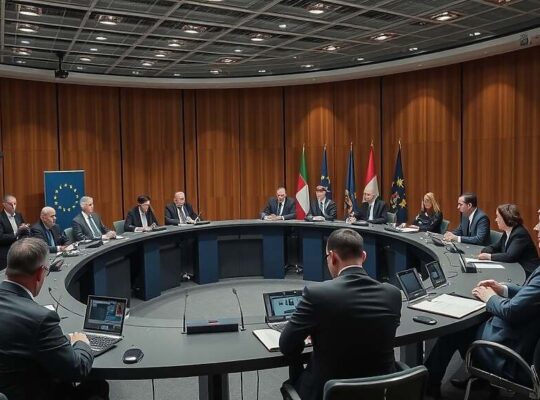A leading figure within Germany’s CDU/CSU parliamentary group has acknowledged shortcomings in the handling of the recent nomination process for a Federal Constitutional Court judge, while attributing the core of the dispute to the Social Democratic Party (SPD).
Steffen Bilger, First Parliamentary Managing Director of the CDU/CSU, stated on Friday that the process “did not run well” and conceded that “mistakes were made, certainly on our side”. Reflecting on the situation, he indicated that the SPD’s initial proposal was polarizing and that the resulting tensions were not adequately addressed by the governing coalition. This, he said, led to significant difficulties within the coalition.
Bilger expressed understanding for the SPD’s dissatisfaction with the proceedings, admitting that the situation remains a strain on the coalition. However, he affirmed that constructive dialogue is underway between the CDU/CSU and SPD parliamentary groups, with both sides working towards a resolution. He emphasized the need to build on the initially successful collaborative spirit demonstrated during the early weeks of the coalition government.
The withdrawal of jurist Frauke Brosius-Gersdorf from consideration has prompted the Left Party (Die Linke) to assert its claim to a nomination role. Party Chair Ines Schwerdtner stated that, based on the current composition of the Bundestag, Die Linke is entitled to propose a candidate. She indicated that the governing coalition will require the support of Die Linke to secure the necessary two-thirds majority in the Bundestag to approve the appointment.
Schwerdtner suggested that the coalition will need to engage with Die Linke to gain their backing. She also alluded to the possibility of the CDU/CSU seeking support from the Alternative for Germany (AfD) party for this or other political objectives, a tactic that she believes the CDU/CSU has demonstrated a willingness to consider.
Schwerdtner characterized the withdrawal of the candidate as a considerable setback for the coalition, claiming it reveals internal divisions. She criticized the apparent difficulty within the CDU/CSU and SPD in maintaining party unity, suggesting a lack of firm leadership. She argued that such internal disarray undermines the government’s ability to effectively address the genuine challenges facing the country.












